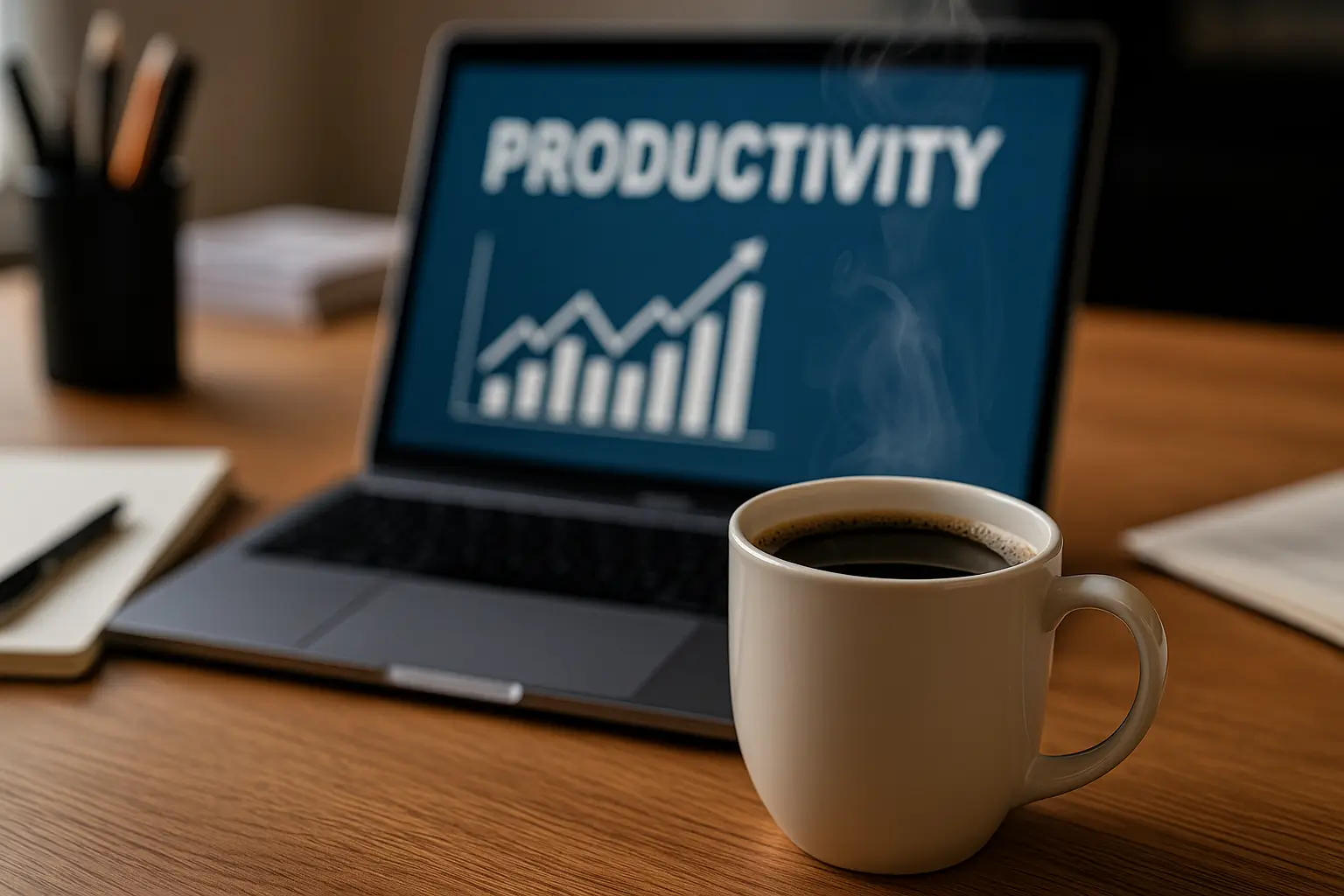Coffee and work are almost inseparable in modern life. From early morning brews to late-night deadline fuel, coffee has become the go-to beverage for boosting focus and fighting fatigue. But what exactly makes coffee so intertwined with productivity? In this article, we’ll dive into the science behind coffee’s cognitive effects, explore its role in workplace culture, and share tips for using it wisely to enhance performance—without burning out.
The Science: How Coffee Affects the Brain
The secret behind coffee’s productivity power lies in one key ingredient: caffeine, a natural stimulant that affects the central nervous system.
What caffeine does:
- Blocks adenosine receptors, which reduces the sensation of tiredness
- Increases dopamine and norepinephrine, improving alertness and mood
- Boosts short-term memory, concentration, and reaction time
These effects usually kick in within 15–45 minutes of drinking coffee and can last 3–6 hours, depending on individual metabolism.
Coffee as a Ritual for Focus
Beyond biology, coffee acts as a mental signal to start working. Many people develop a ritual—brewing a cup, sitting at their desk, taking that first sip—which triggers a state of readiness and focus.
Coffee as a productivity anchor:
- Sets the tone for focused work sessions
- Encourages time-blocking (e.g., work until the next cup)
- Offers structured breaks to prevent burnout
This habit loop (cue – routine – reward) helps reinforce work habits and build consistency in daily tasks.
Workplace Culture and Coffee
Coffee has become a symbol of workplace culture worldwide. From corporate offices to remote home setups, coffee breaks provide both social bonding and mental reset opportunities.
Common workplace connections:
- Office coffee machines as gathering points
- Scheduled coffee breaks (e.g., fika in Sweden)
- Remote teams using “virtual coffee chats” for team bonding
- Networking events over coffee instead of alcohol
These rituals foster collaboration, reduce stress, and build team morale—all while improving focus post-break.
How Much Coffee Is Too Much?
While moderate caffeine intake has proven benefits, overconsumption can backfire.
Recommended safe intake:
- Up to 400 mg per day for healthy adults (approx. 3–4 cups)
Symptoms of too much caffeine:
- Jitters or anxiety
- Increased heart rate
- Insomnia or disrupted sleep
- Digestive issues
- Headaches or energy crashes
Individual tolerance varies, so it’s important to listen to your body and adjust accordingly.
Best Times to Drink Coffee for Productivity
Timing your coffee consumption can enhance its effects. Caffeine interacts with your natural cortisol (stress hormone) cycle, so syncing with your body’s rhythm is key.
Ideal windows:
- 9:30 AM – 11:30 AM: After natural morning cortisol dip
- 1:00 PM – 3:00 PM: To combat early afternoon energy slump
- Avoid after 4:00 PM if you’re sensitive to caffeine and value your sleep
Strategic timing = better focus and less chance of energy crashes.
Coffee and Deep Work
Coffee can be a powerful aid for deep work—periods of high concentration and minimal distractions.
How to maximize it:
- Use coffee to kickstart a 90-minute focused work block
- Pair with the Pomodoro technique (e.g., work 25 mins, break 5 mins)
- Combine with noise-canceling headphones and task batching
The ritual of starting with coffee can help you mentally commit to getting into flow state.
Smart Coffee Habits for Sustainable Productivity
Want the benefits of coffee without the crash? Follow these tips:
- Hydrate first: Drink water before your first cup to reduce dehydration
- Eat something: Caffeine on an empty stomach can spike anxiety
- Limit sugary add-ins: High sugar can lead to energy dips
- Switch to decaf in the afternoon: You still get the ritual without the stimulant
- Take caffeine breaks: Reset your sensitivity by skipping it one or two days a week
These habits help maintain energy and focus without relying too heavily on coffee alone.
Alternatives for Coffee Breaks
While coffee is king, mixing in other productivity-friendly options can add variety:
- Green tea: Less caffeine, more calming L-theanine
- Yerba mate: Energizing with antioxidants
- Golden milk: Turmeric-based drink for anti-inflammatory benefits
- Matcha: Smooth, long-lasting caffeine release
- Plain water: Sometimes fatigue is just dehydration
Having non-caffeinated choices on hand gives your body a break while keeping your mind sharp.
Final Thoughts: Brew Smarter, Work Better
Coffee is more than a beverage—it’s a performance enhancer, a social tool, and a mental motivator. Used mindfully, it can help you tap into your best work, stay consistent, and even connect with others in meaningful ways.
So whether you’re writing a report, coding, designing, or just starting your day, a cup of coffee can be your partner in productivity—just be sure to sip with strategy.
